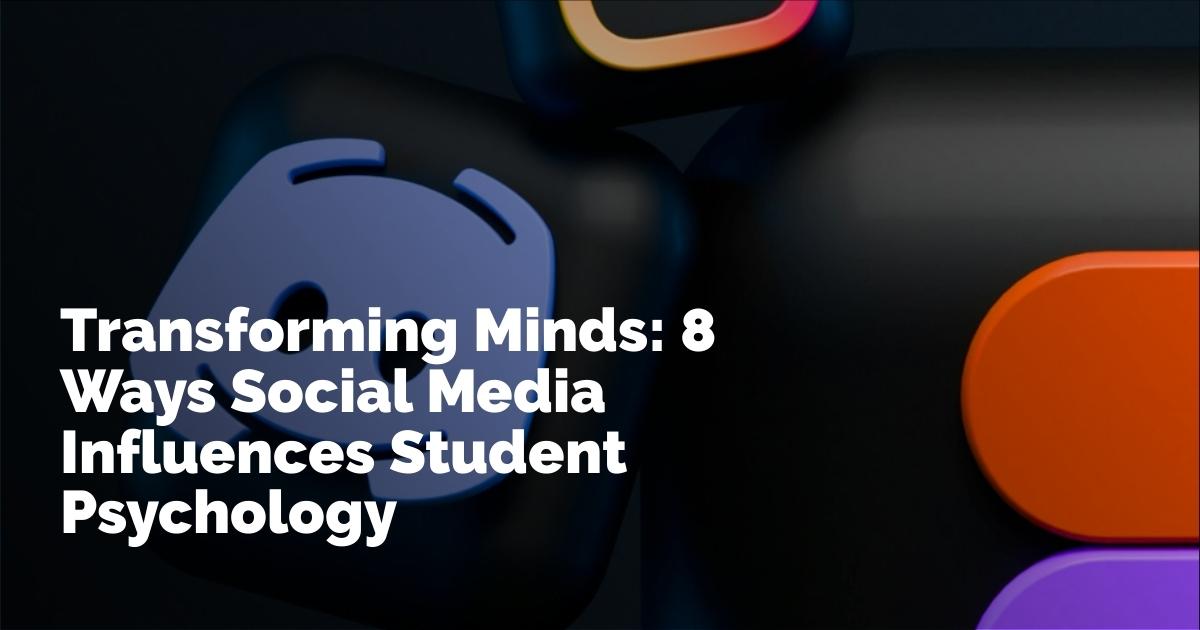Social Media's Profound Impact on Student Psychology
The influence of social media in today's society is undeniably extensive. While many are aware that social media has revolutionized communication and interaction paradigms worldwide, its deeper psychological effects on students often remain underestimated. This article delves into how social media might be fundamentally altering students' mental processes and behaviors.
Decreased Attention Span
In an era dominated by digital disruptions, social media platforms play a pivotal role in creating a culture of perpetual distraction. Designed around notifications and snippets of information, these platforms foster an environment where sustained attention becomes a rarity. Due to the nature of rapid content consumption, students find themselves struggling to concentrate on tasks requiring prolonged engagement, such as deep reading or intensive study sessions. In essence, the brain adapts to digest information in bite-sized chunks, compromising its capacity for extended focus.
Reduced Memory Retention
The constant ebb and flow of digital content discourage users from deeply engaging with any singular piece of information. This hyperactive engagement leads to frequent transitions between platforms and ideas, weakening the brain's natural mechanism for storing and retaining information over time. The lack of deep processing often results in fragmented knowledge, where students may remember content momentarily but struggle with long-term retention and recall.
Increased Dopamine Release
One key element of social media's addictive nature is its ability to trigger dopamine release through likes, comments, and other forms of online interactions. This neurotransmitter is associated with pleasure and reward, fostering a cycle where students continually seek gratification from digital validation. The allure of this "feel-good" loop can make it increasingly challenging for students to disconnect from their devices and engage with offline tasks, further compounding attention and focus issues.
Comparison and Self-Esteem Issues
The curated aesthetic of social media platforms often portrays an idealized version of life, where the highlight reel is emphasized while mundane or less flattering moments are omitted. For students, this continuous exposure to seemingly flawless lives can prompt detrimental comparisons with their own realities, undermining self-esteem and potentially leading to increased feelings of anxiety, depression, and a pervasive sense of inadequacy.
Sleep Disruptions
Engagement with social media does not stop at psychological impacts; it also encroaches on students' physical wellbeing. The blue light emitted from digital screens can significantly interfere with the production of melatonin, a hormone pivotal for regulating sleep. Late-night scrolling disrupts sleep patterns, negatively influencing cognitive function, memory, and overall health. Consequently, students often find themselves exhausted and unproductive during their waking hours, exacerbating the very issues they aim to escape.
Altered Social Skills
Extensive reliance on digital modes of communication has shifted the way students interact with one another. While social media offers numerous platforms to stay connected, this preference for online interaction may come at the expense of developing robust face-to-face social skills. Students may find digital communication to be more comfortable, inadvertently inhibiting their ability to forge strong interpersonal relationships and emotional connections in real-world settings.
Decreased Critical Thinking
The operational algorithms of social media platforms tend to create an echo chamber, often referred to as "filter bubbles," where users encounter information that aligns with their existing beliefs and views. For students, this can severely limit exposure to diverse perspectives, resulting in an impaired ability to think critically or consider opposing viewpoints. A lack of engagement with differing opinions prevents the formation of well-rounded judgments and a comprehensive understanding of complex issues.
Increased Stress and Anxiety
The pressure to maintain an engaging online persona, combined with the pervasive fear of missing out (FOMO), contributes significantly to elevated stress and anxiety levels among students. The necessity to stay continuously updated, coupled with the desire to project an immaculate online image, can be overwhelming. This constant connectivity creates an atmosphere of tension and unrest, as students might equate their worth with their digital presence rather than intrinsic personal value.
While social media provides extensive opportunities for connection and information, its potential drawbacks—particularly concerning student psychology and development—are worth noting. Understanding these effects can foster more mindful use of these platforms, ensuring they enhance rather than hinder educational and personal growth.
출처 : Original Source

